Jubilee line extension celebrates 25 years
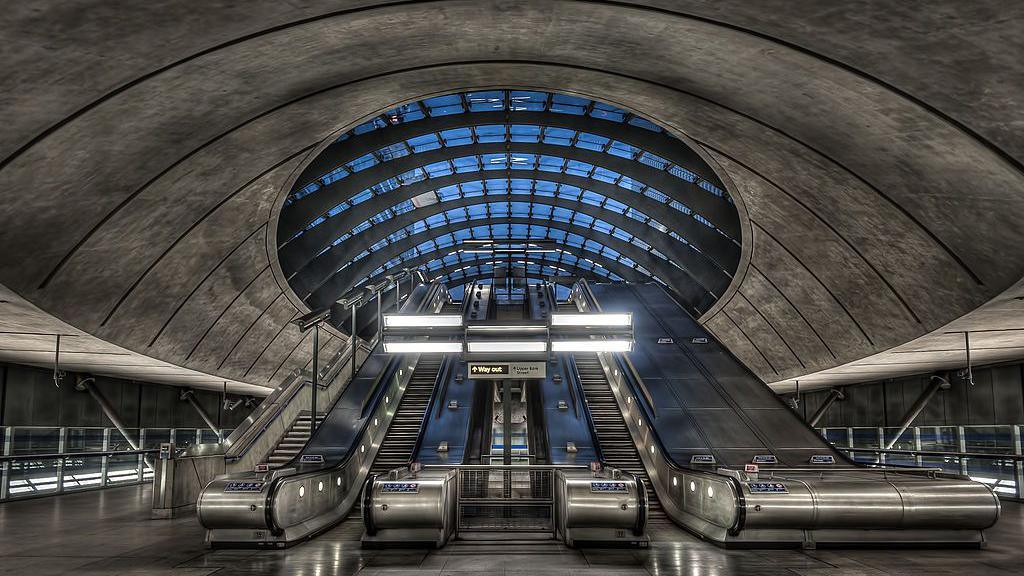
Canary Wharf pictured as it opened on 17 September 1999
- Published
Part of the Tube line that connected central and south-east London 25 years ago is being celebrated by Transport for London (TfL).
The Jubilee line extension connects Green Park with the Docklands.
All 11 stations along the route were designed by architect Roland Paoletti to herald the new millennium.
To mark the occasion, TfL has created 25th anniversary posters that will feature along the Jubilee line over the coming weeks.
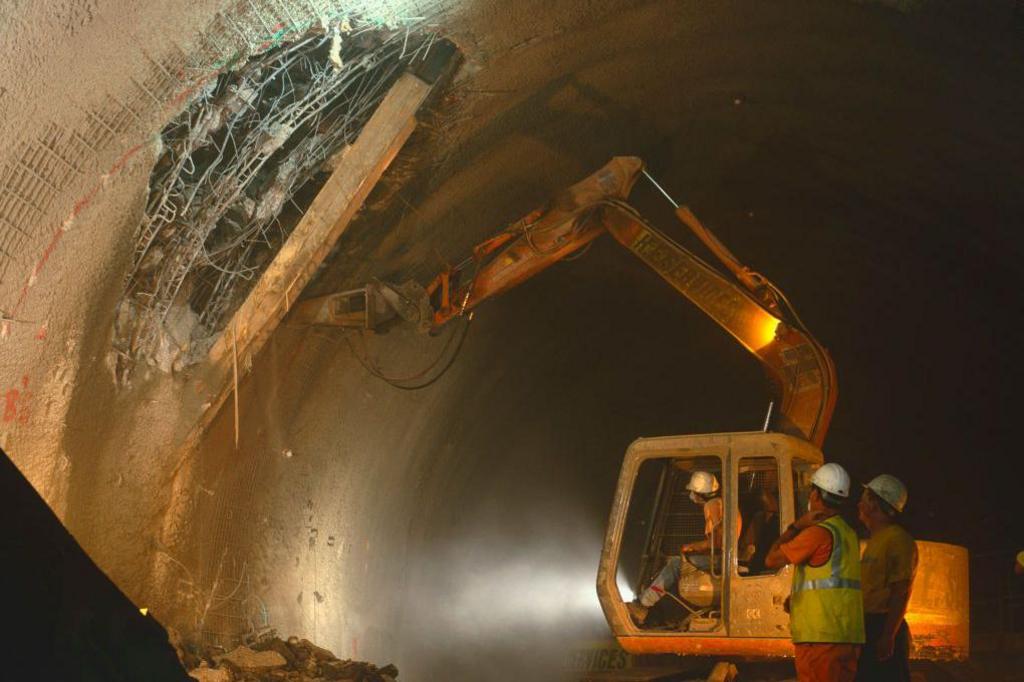
Drill rig working in tunnel for the Jubilee line extension
The Jubilee line runs between Stanmore in north-west London and Stratford in east London, via the Docklands, South Bank and West End.
The first section of the line, which connected Wembley Park and Stanmore, was built in 1932, and was part of the Metropolitan line.
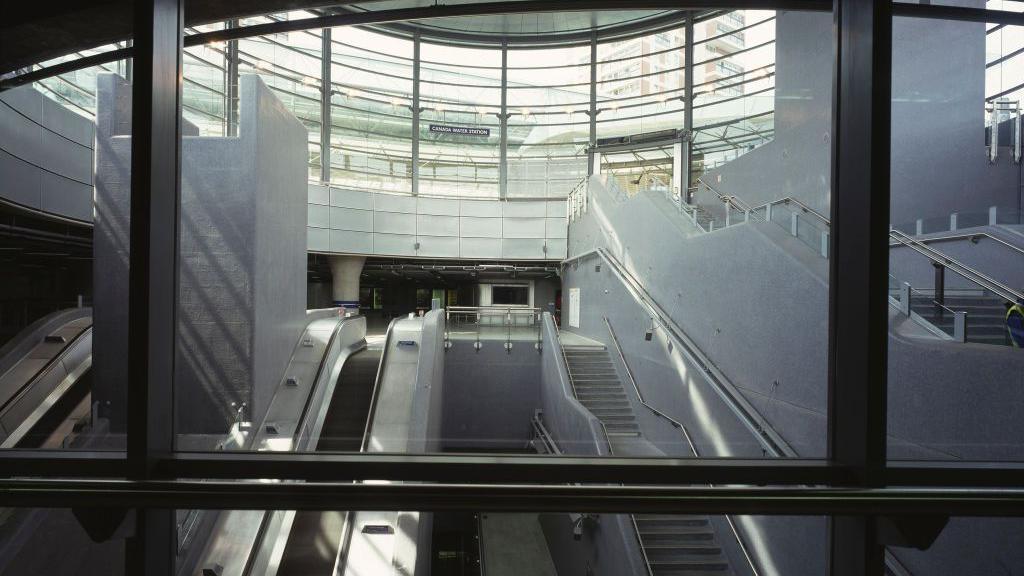
Canada Water station was built 'for the future' with glass panelling letting in light
As a Tube expansion east and west of the centre was considered immediately before and after World War II, the Jubilee prototype was named the Fleet line, after London's subterranean Fleet River.
It was renamed the Jubilee line in 1977 as part of the celebrations to mark Queen Elizabeth II's silver Jubilee.
The line was officially opened by the Prince of Wales on 30 April 1979, with passenger services operating from 1 May 1979.
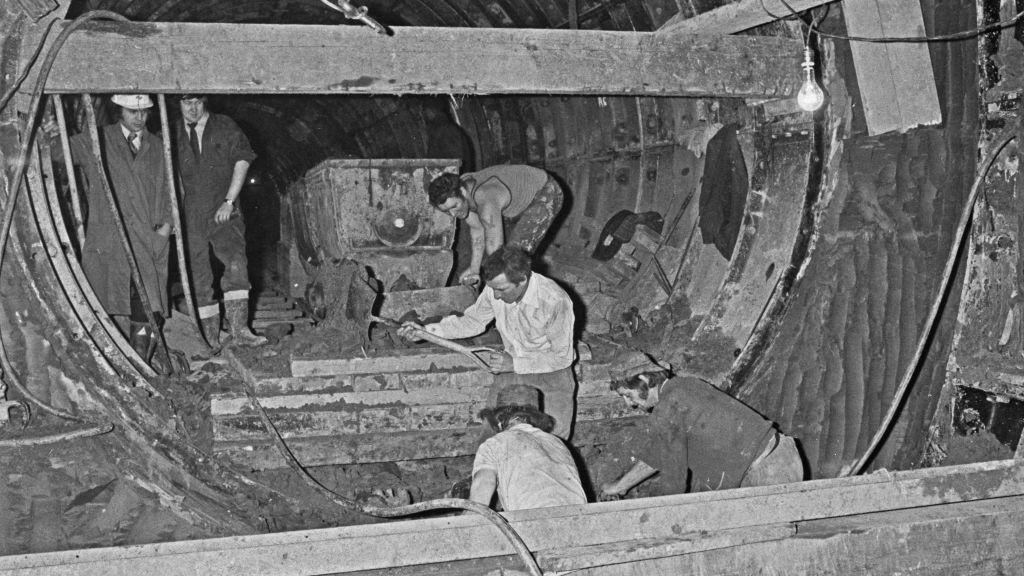
A section of the Fleet line (later the Jubilee line) being built between Baker Street and Charing Cross on 31December 1973
The choice of battleship grey for the line's colour was based on the naval meaning of the word fleet.
It then became a lighter grey to represent the silver colour of the Jubilee itself.
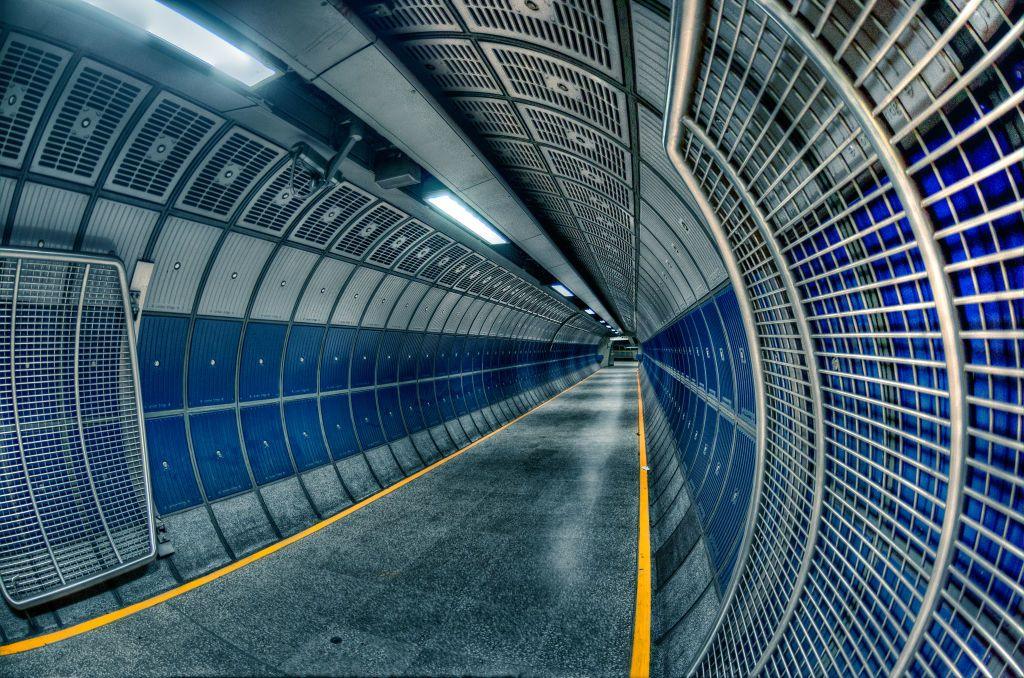
The distinct blue and grey steel with the yellow guide stripe running along the floor of a London Bridge station corridor
In May 1999, it was then expanded further adding Stratford, the line’s current eastern terminus and where Stratford International and Westfield Shopping Centre would later open, and North Greenwich, close to the Millennium Dome, now the O2.
It extended further west in the September to Bermondsey via the Canary Wharf financial district, which is now the most-used station for a single line and the busiest station outside central London, serving 40 million people each year.
The stations were built all step-free, with lifts, ramps and level surfaces for people with accessibility requirements.
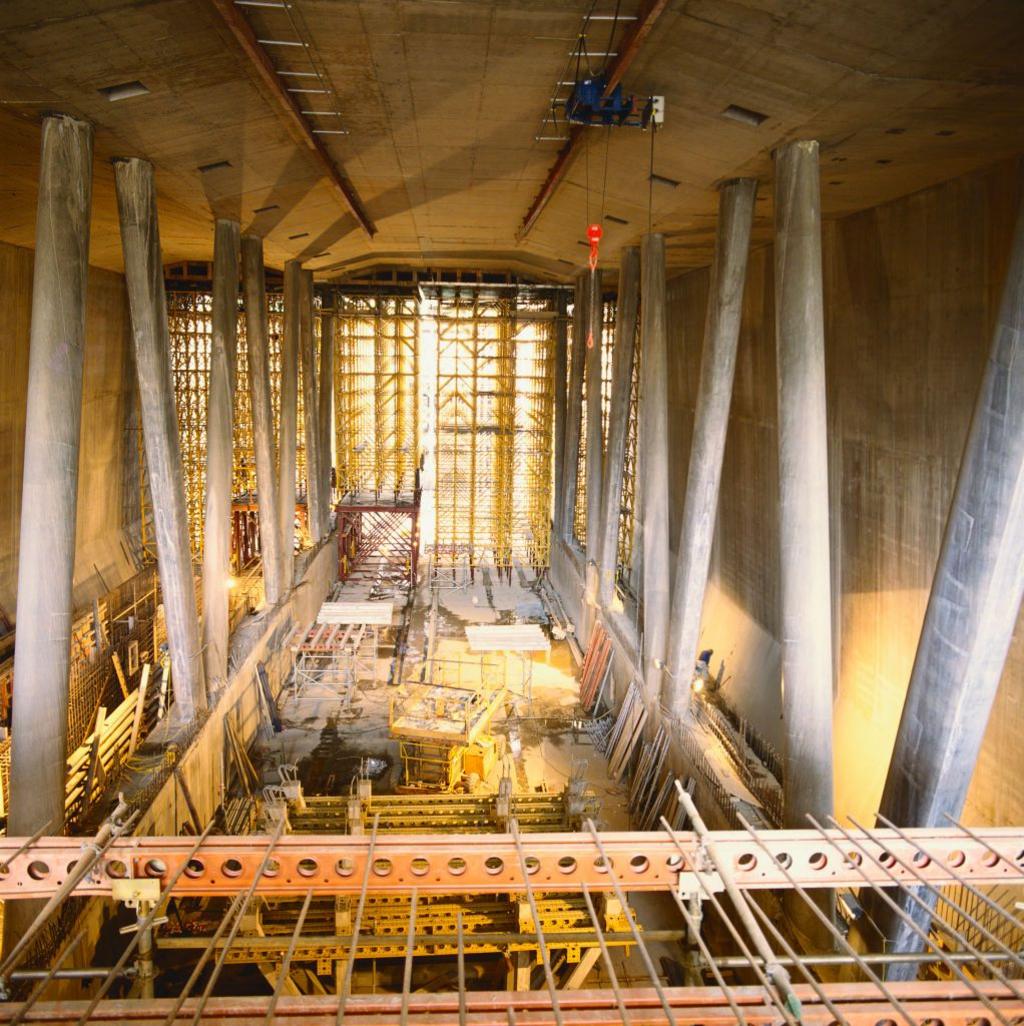
North Greenwich station under the construction of the Jubilee line extension
With the new millennium on the horizon, Jubilee's final phase connected Bermondsey with Green Park, creating the line as we know it today.
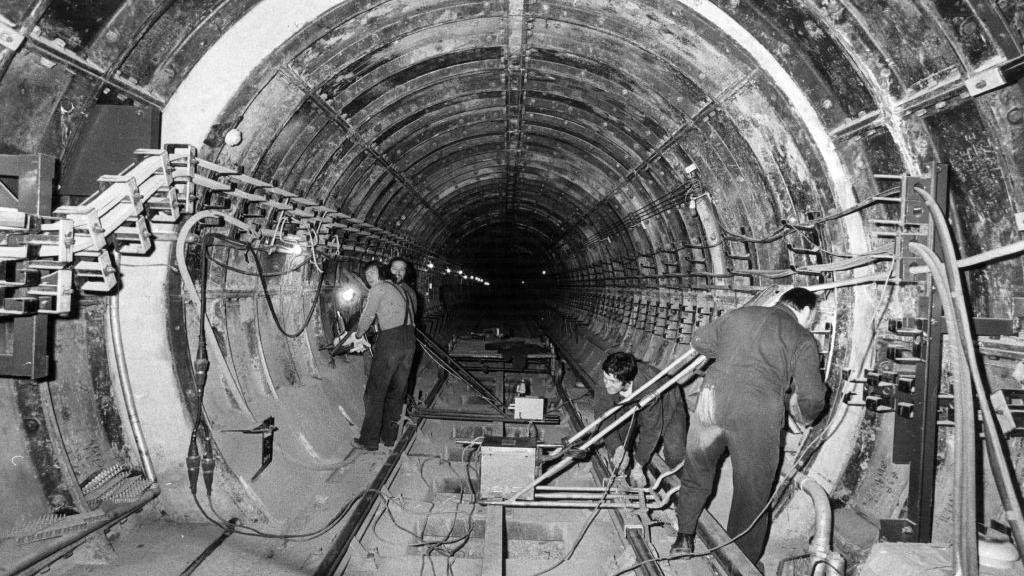
Drilling a new soundproofing ledge on the Jubilee line at Green Park on 2 May 1977
Listen to the best of BBC Radio London on Sounds and follow BBC London on Facebook, external, X, external and Instagram, external. Send your story ideas to hello.bbclondon@bbc.co.uk, external
More on the London Underground
- Published14 May 2024
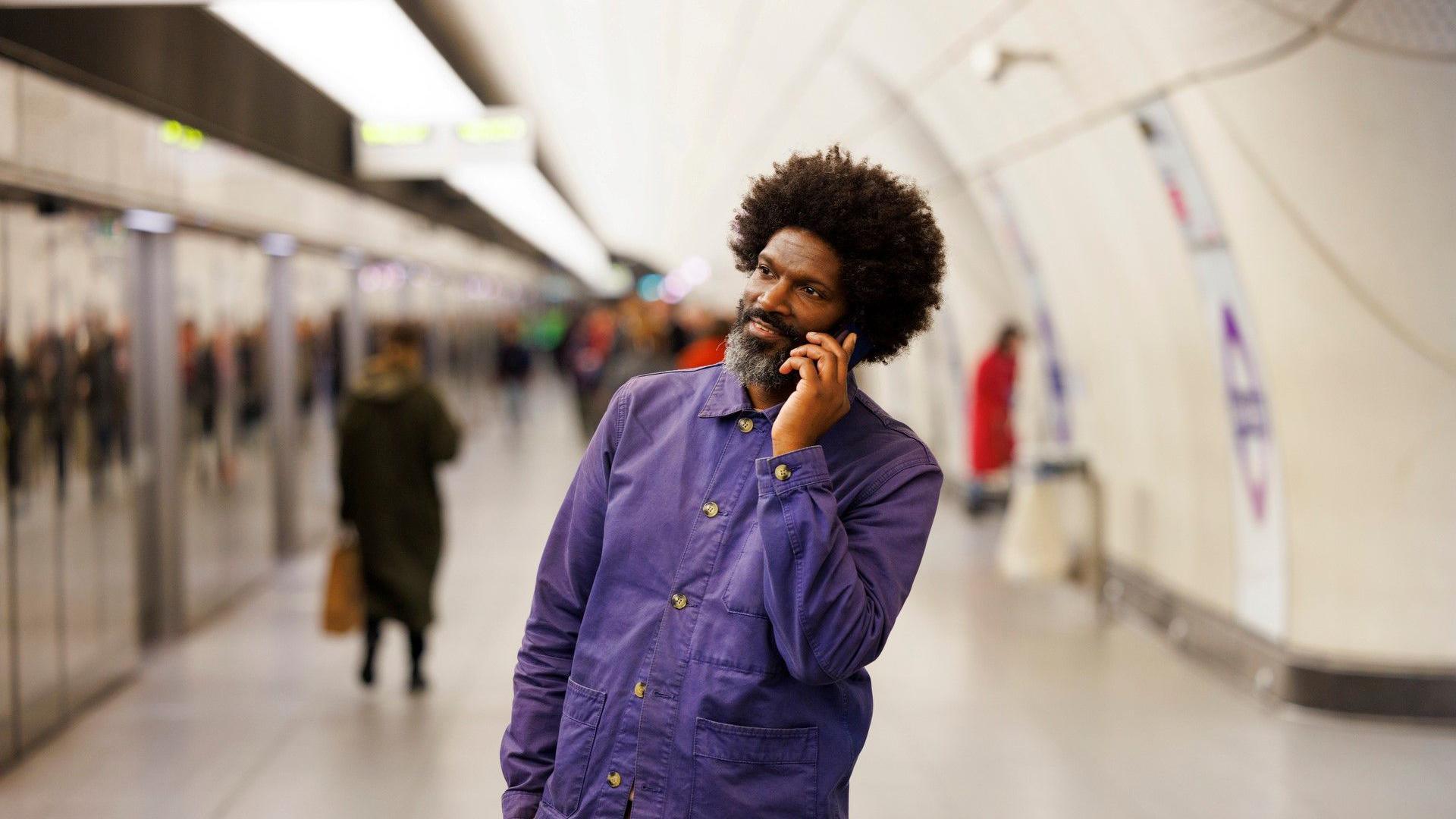
- Published8 May 2024
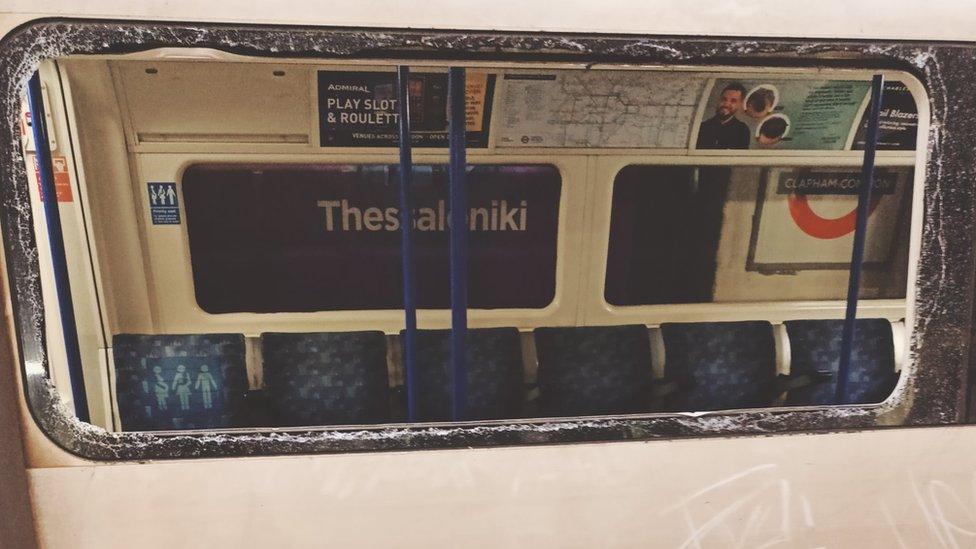
- Published3 May 2024
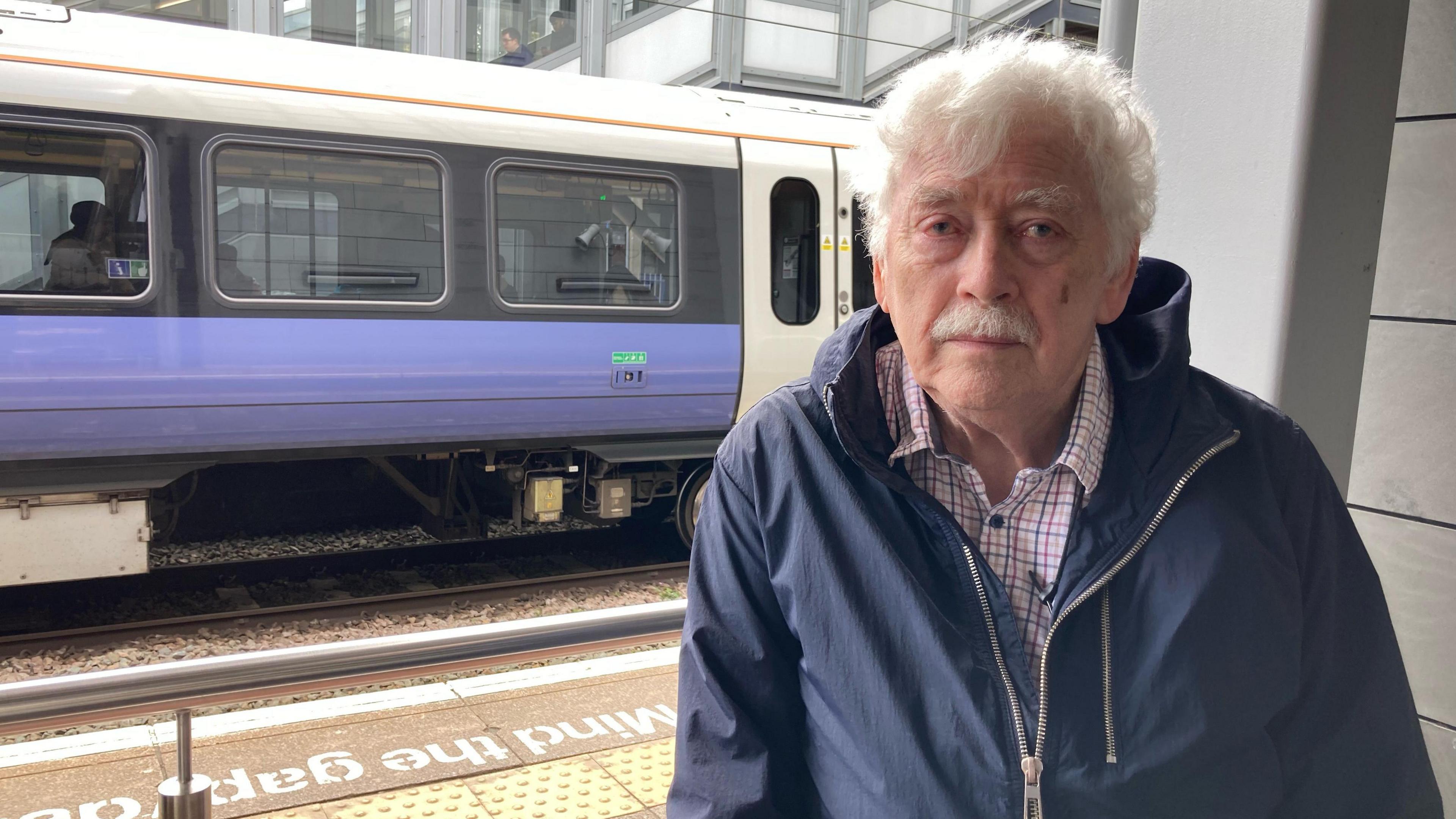
- Published27 March 2024
